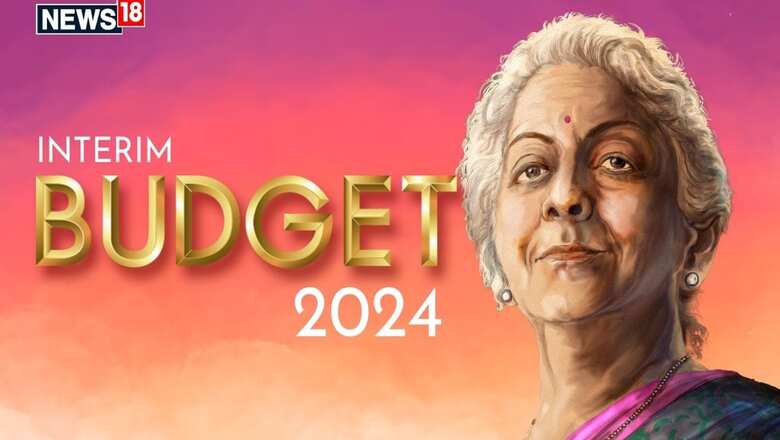
views
Budget 2024 Expectations Income Tax: The union budget for 2024, which is expected to be announced in February 2024, will be an interim budget due to the upcoming general elections later in the year. This means that major changes to income tax policy are unlikely, but there are still some key expectations and wishlists from taxpayers.
Also Read: Budget 2024 Income Tax: ‘Burden On Salaried Class Needs Reduction’, High Hopes From FM
Based on historical trends in the analysis of interim budgets, it is evident that these budgets typically serve as a continuation of existing policies, with a tendency to avoid major policy shifts or the introduction of new initiatives. Consequently, interim budgets generally do not feature significant announcements or changes. This observation aligns with the statement made by the Finance Minister regarding the 2024 interim budget, asserting that no dramatic alterations will be unveiled.
“It is entirely possible that the government may not make any changes or make certain minimal changes which are of wide applicability,” said Suresh Surana, founder, RSM India.
According to Surana, the basic changes that can be expected by the taxpayers either by way of amendments or by way of announcements to be implemented if the ruling party was voted back to power are discussed below:
Increase of basic exemption limit from Rs 2.50 lakhs to Rs 3.5 lakhs
Currently, the Income Tax Act, 1961 (hereinafter referred to as ‘the IT Act’) provides for a basic exemption limit of Rs.2,50,000 which has remained unchanged for several years. Given the current annual inflation rate of about 5%, the higher cost of living and the time that has elapsed since the last revision, it is expected that the basic exemption limit will be increased to Rs. 3,50,000. This will benefit a large number out of the approximately 7 crore taxpayers and provide them some insulation against inflation.
Increasing threshold limit for investment-linked deductions under section 80C
One of the very popular deductions that many taxpayers avail is u/s 80C of the IT Act which provides for investment-linked deductions such as Provident fund, ELSS, life insurance premium, housing loan repayment, 5 years bank deposits, etc. The existing threshold limit of Rs. 150,000 under this section was last revised in the Budget 2014. Thus, considering the inflation over the years and the greater need for financial security due to economic uncertainty, the threshold limit should be enhanced to Rs. 200,000.
Enhancing the threshold limit for Section 80D and the applicability of medical expenditure to be extended to individuals other than Senior citizens
Section 80D of the IT Act provides for deduction concerning the medical premium paid. Such deduction is restricted to Rs. 25,000 and in the case of senior citizens, the maximum threshold has been restricted to Rs. 50,000. However, there has been a spike in health insurance premiums due to the COVID pandemic and inflation as well as the need for higher coverage. Thus, there is a need to enhance the threshold from existing Rs. 25,000 to Rs. 50,000 for non-senior citizens and senior citizens from Rs. 50,000 to Rs. 75,000.
Tax on dividends distributed by domestic companies to be restricted to 20%
Under the existing provisions of the IT Act, there is a double taxation of income in the case of companies – firstly the companies pay corporate tax and then the shareholders pay tax on the dividends. In the case of resident individual shareholders, the tax on dividends can be as high as 35.88%. On the other hand, non-residents are liable to tax on dividends @ 20% (plus surcharge and cess) which gets further lowered by Double Tax Avoidance Agreements to 5%-15%.
To reduce the cascading effect of double taxation, it is expected that the maximum tax on dividends distributed by domestic companies in the hands of resident shareholders be limited to 20% (plus surcharge and cess).
Overall, the budget focus is likely to be on fiscal prudence and stability, with limited scope for major tax reforms. However, some targeted modifications to address inflation and encourage investment could be announced.
However, these are just expectations and speculations, and the actual budget proposals may differ.
Budget 2024 Date: The interim budget for 2024 in India will be presented on February 1st, 2024.


















Comments
0 comment